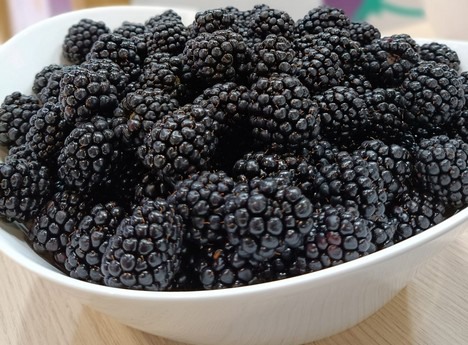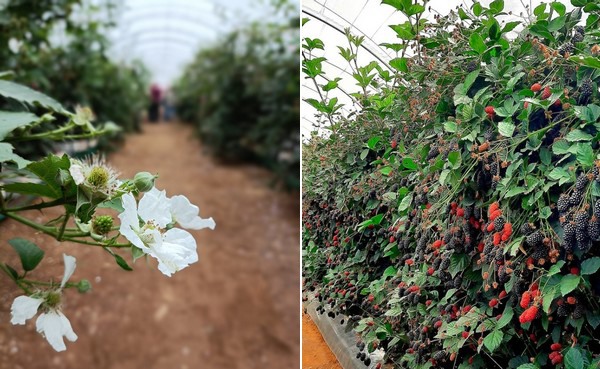The strawberry  market is currently characterized by imports from numerous countries. Despite the energy crisis, there are isolated traded goods from Dutch and Belgian greenhouses. Meanwhile, the first early varieties from Portugal and Spain are now arriving on the market. "The assortment is rounded off with Moroccan batches, which represent good value for money, as well as flying goods from Egypt," says Jonás Cano, product specialist at PPO Services AG in Switzerland. Following up on his presentation at this year's Berry Seminar, Cano offered his insights into the current berry market.
market is currently characterized by imports from numerous countries. Despite the energy crisis, there are isolated traded goods from Dutch and Belgian greenhouses. Meanwhile, the first early varieties from Portugal and Spain are now arriving on the market. "The assortment is rounded off with Moroccan batches, which represent good value for money, as well as flying goods from Egypt," says Jonás Cano, product specialist at PPO Services AG in Switzerland. Following up on his presentation at this year's Berry Seminar, Cano offered his insights into the current berry market.
Across all products, a good and steady supply situation is shaping the berry market overall. "Demand for all berry varieties picks up noticeably during the pre-Christmas period. As far as strawberries go, the first Portuguese and Spanish early varieties are doing very well in terms of Brix content and ripeness. For raspberries, we can count on Spain for 80-90 percent. In the case of blackberries, we have also had a good supplier in Spain for several years, who is dedicated exclusively to blackberry cultivation. Because of this, we can fall back on Spain from September after the end of the domestic season until the next harvest and thus do without Mexico. We have a similar partnership with a currant producer in the Netherlands."

Blueberries, on the other hand, are seeing brisk overseas trade in the winter. Cano: "We are about to change seasons from Peru to Chile, after which we will continue with Moroccan goods. Then, starting in January, the first shipments from Spain will start arriving." Blueberries are establishing themselves as a strong promotional item in the process. "We've had regular promotions in grocery stores since September, which helps with the continuity of volume purchases."
Founded in 1946, PPO Services AG is dedicated to importing fruits and vegetables from around the world for the Swiss and European markets. "In the 70s and 80s, strawberries were mainly imported from Spain and Italy. The import was limited to two or three varieties, such as Douglas and Chandler, 1-2 packaging sizes, i.e. 250g and 500g trays, and the import season lasted three to four months at most. In the last 10 to 15 years, berry production developed rapidly, new technologies enabled diversification of production in the process."
Investments in new berry crops
Accordingly, the PPO Group has significantly expanded its portfolio. "Nowadays, our range includes up to 75 different items throughout the year, depending on the season and domestic crop quantity. The core assortment still includes strawberries, blueberries, raspberries and the popular berry mix, as well as blackberries and currants on a smaller scale. Fresh goji berries and haskap berries, however, never made a breakthrough. In 2022 to date, the PPO Group has imported berries from a total of 29 different countries."

Blackberry cultivation in Huelva, southern Spain.
Long-term growth expected in organic berries
The distribution of organic products is handled by an independent department within the PPO Group. In the case of berries, the organic share is around 10 percent. Cano: "Given the somewhat uncertain market situation, we do not expect an increase in sales. Over the medium and long term, however, we are convinced that the numbers will continue to rise." In this context, the fruit trader also points to the increased quality requirements in the soft fruit sector. "In terms of sustainability, the challenges for the sector are extreme: For the Swiss market, berries are imported from growers who use existing water resources sustainably and have a Spring or Rainforest certificate."
For more information:
Jonás Cano
PPO Services AG
Herrenmattstrasse 3
Postfach 95
CH-4658 Däniken
Tel.: +41 62 207 54 54
[email protected]
www.ppo.ch
